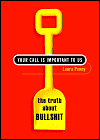
Your Call Is Important To Us by Laura Penny (review coming soon).

The Forest for the Trees: An Editor's Advice to Writers by Besty Lerner (rating 8/10). Lerner is a fine writer, and this was an enjoyable read. She tells stories on a lot of writers she has worked with, but without mentioning their names so we get to enjoy their foibles without that sense of reading a book full of gossip. I had hoped for was more practical advice: how to start on the road to getting an agent (who do I call or write to or see?), how might I start putting together a portfolio, if I have a few publication credits and no formal training what should I do next, stuff like that. These things were, I think, beyond the scope of the book but I'm sure she could have included them. With her skills, I'm sure she would still have produced a wonderfully compelling book.
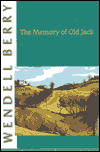
The Memory of Old Jack by Wendell Berry (rating: 8/10) there's something about his storytelling, something in the tone he takes as narrator that I find too 'present.' I was conscious of his presence in the story. That in itself is not a bad thing, the guy can write after all and the story was a good one too. The problem (though a minor one) wasn't that Berry seemed to have put himself in the book but that he seemed to be trying not to. Because of this seeming ambivalence of his it felt at times as if Old Jack was a book that just misses being a sermon. I like good sermons and I like good books. Book length, book form sermons are okay too. I just wish this one had decided to be one or the other.
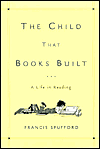
The Child That Books Built by Francis Spufford (rating: 7/10). It's a memoir about how books shaped Spufford's young life. It ends abruptly as he is about to enter adulthood which is where I think the story would have become a lot more interesting. Spufford says it's none of our business. Obviously, he doesn't know what a writer does. That's a rather large criticism of an author who clearly knows how to craft a sentence, but sentence-craft does not a writer make. The ability to put yourself out there is a must, and Spufford doesn't display that, not in this book anyway.
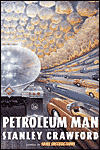
Petroleum Man by Stanley Crawford (8/10). The biography of the most self absorbed rich guy on the planet, Leon Tuggs. His aspiration is to own everything but he is empty. Crawford writes the entire thing in Tuggs voice, each chapter is ostensibly about a model car he gives to his grandchildren, but is in reality a mini sermon on the glories of wealth. Leon Tuggs is a very lonely man. To Crawford's credit, he lets us know this without allowing Tuggs to discover it himself. Brilliantly written and funny. Uber Capitalists probably should not read this book, mostly because they'll think it's an instruction manual.
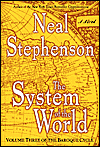
The System of the World by Neal Stephenson. (rating 9.5/10)Stephenson loves to write long, immensely complex, brilliantly conceived and researched historical fiction novels. The baroque cycle comprises three, no make that four such novels. There are three volumes but the middle one, The Confusion, is actually two novels which are sewn together, con-fused. This final book is a wonder to read. The amount of work involved, not only in terms of crafting a story and writing it down, but in researching the situations Stephenson creates simply staggers the mind. There are sentences in the book that must have required months to be able to knowledgeably write down.
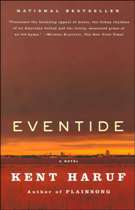
Eventide by Kent Haruf. (rating: 9/10) Any book that earns 9 out of a possible 10 has to be very good, though I had hoped that maybe Haruf would earn the highest score with this sequel to Plainsong (reviewed below). Eventide is a great book and highly recommended, but it's also kind of depressing. Haruf has said that the title is a clue to the approaching darkness we see in the narrative. It's not that I mind brooding fiction, I sort of like it in fact. But I don't know... I hoped for a little more, well, hope. It is there, but you have to look for it which is, I suppose, a lot like our real lives. And Haruf's charcters are nothing if not intensely and unforgettably real. This book is another must read, I just hope Haruf visits some of these people again.
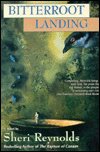
Bitteroot Landing by Sheri Reynolds (Rating: 5/10) There are raves on the back jacket but this is a weak book. Reynolds' later "Rapture of Canaan" is terrific. This is, well, not. I almost gave up a third of the way through, but then something interesting happens. The story, about a girl growing up through unbelievably harsh treatment, is not really plausible. Reynolds seems haunted by faith and she gives this same longing to all her chracters. It would be interesting to see her write a character who is completely uninterested in spiritual things. Ignore this book and read "The Rapture of Canaan" instead.
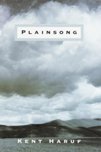
Plainsong by Kent Haruf. (10 out of 10) Beautiful story simply and elegantly told about various residents of Holt, Colorado. Moments of beauty and pathos mix with laugh out loud humor. A great book. Not a misspent word in this one.

The Optimist's Daughter by Eudora Welty (rating:7/10). A not very gripping novel about a woman who copes with an identity crisis following her father's death. Welty doesn't seem to know what to do with her character, Laurel. Fay, however, the sniveling, selfish stepmother, she nails cold. Fay is one of those characters you just love to hate. Unless of course, you are just like her in which case you'll likely be vaguely embarrassed. An okay novel if you've got time for it.
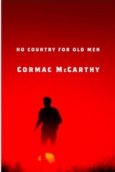
No Country For Old Men by Cormac Mccarthy. (9.5/10) Not only could I not put this novel down, I could barely stand to take my eyes from the page. No Country grabs you by the throat, shakes you like a rag doll for three hundred pages and leaves you exhausted. I loved it. McCarthy's prose is at once spare and detailed in this brutal story of a killer, a hunter, and the sheriff who always arrives too late. A meditation on the frustration of aging in an ever spiraling moral universe. Not for the timid.
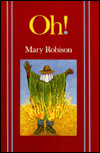
Oh! by Mary Robison (6/10). Another well written book with unappealing characters doing unappealing things to each other and themselves. If you like that sort of thing, this is just your cup of tea, or gin as it were. Everyone in this book drinks too excess, except Violet, the daughter of the main character. The cover illustrates a scene in the book. It is brief and almost the only excitement in the story. Mary Robison sure can write, I just wish she had found better things to write about. She eventually did, read this book instead.

Duane's Depressed by Larry McMurtry (9/10). What a difference from the earlier two books in the "Last Picture Show" trilogy! This book isn't about sex, for one thing. To be fair the other two weren't about sex either, but they seemed to be. This time we walk into and through depression with Duane. Though McMurtry famously excels at getting into the heads of his female characters, and it's as true here as in his other books, this time he rigourously captures the feeling of a man's depression, ground which I know well enough and which I don't care to tread again anytime soon, God willing. I didn't mind walking it with Duane and with Mr McMurtry, though. I didn't mind at all.

Gilead by Marilynne Robinson (rating 9.5/10). This novel is so good I was looking forward to giving it a 10 out of 10. However, about three fourths of the way through, Robinson felt compelled to give us an extended narrative from a major character other than the protaganist. Since the novel is intended as a letter from the dying John Ames to his son, the extended monologue, presented as a quotation from another character, shifts the voice of the novel and its point of view, doing damage, I believe, to an otherwise faultless narrative. That was a disappointment. But the rest of the book is so vivid, so plainly beautiful, so... perfect that it easily earns a place among the great works of American literature. No kidding. If you haven't read it, put aside everything else and find a balm in Gilead.

The Body Artist by Don Delillo (rating 8/10). Not long ago I read Delillo's "White Noise" and thought it was excellent. So, true to my nature I went out and bought two more of his books, this one, and "Underworld," which I'll get to sometime. Body Artist was simultaneously excellent and disappointing. Delillo's a confident writer. Perhaps too confident. I'm of the opinion that writing well is a truly selfless act (something I'll have to post on at some point). Delillo's prose is not selfless, at least in this book; this is not true of "White Noise." I believe he was aware of every word he was writing, consciously constructing the story instead of letting his characters live it. The book is essentially a ghost story, but not really. There is a surprise pretty early on that you never get over, which I think is the point. I liked that. I also enjoyed that the name of the protaganist doesn't appear until about page 50, since the structure of the story doesn't really allow it to appear earlier; that's one way in which Delillo's (over)confidence serves the story. You can't say he doesn't know what he's doing.
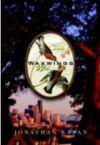
Waxwings by Jonathan Raban(rating: 8/10) The reason I give this expertly written novel the equivalent of a "B"? The story is engrossing, but we're almost a third of the way through before we find out that Thomas Janeway is the main character and even farther down the road before we discover a major plot line. Furthermore, the book ends too soon. We want to know what happens to Thomas and to his wife beyond the final page. It is almost as if Raban wrote 80 pages of backstory and included them in the novel, but couldn't be bothered with the ending. He's still a wonderful storyteller, however. A subplot regarding Chick, a stowaway chinese who narrowly escapes discovery and eventually enters Thomas Janeway's life, told entirely from Chick's point of view, is particularly engaging. It is a sign of Raban's narrative gifts that he manages to evoke sympathy for his protaganist despite that character's shambling and dangerous self-absorption.
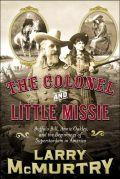
The Colonel and Little Missie (rating: 9/10) Reading McMurtry, I often get the feeling that he's sitting with my telling the story, that I'm not reading a book but listening to him. His voice sounds a lot like my own. I think that's what makes him such a great writer. He has a way of saying things that are definitely his opinions and insights, but you "hear" them in your own voice. I don't know if that makes any sense, but this book does. I love the plainspoken way he tells the story of Buffalo Bill and Annie Oakley, simultaneously demythologizing (his specialty) and heroicizing both of them. As usual, McMurtry finds ways here and there of tying the story to his own experience. This book is an achievement, and not his first either.

Texasville (rating 7/10). McMurtry treading his far too typical thematic landscape, sex. In Texasville, everybody sleeps with pretty much everybody else. If he weren't such a wonderful writer I would have thrown this book across the room. The main character suffers from a frustrating emotional myopia. The other adult characters are all jerks. If I were Duane, the 'hero' of the book, I would have told them all to take a flying leap. Still, McMurtry is the master of diaglogue. He's worth reading for his ear alone. There is not a single stilted conversation rendered in the book. Of course, you can read almost any McMurtry book to get realistic dialogue, you don't have to put up with this one.

The Winemaker's Daughter (rating:6/10)

The Confusion (rating 9/10)

The Noonday Demon (rating 8.5/10)
No comments:
Post a Comment